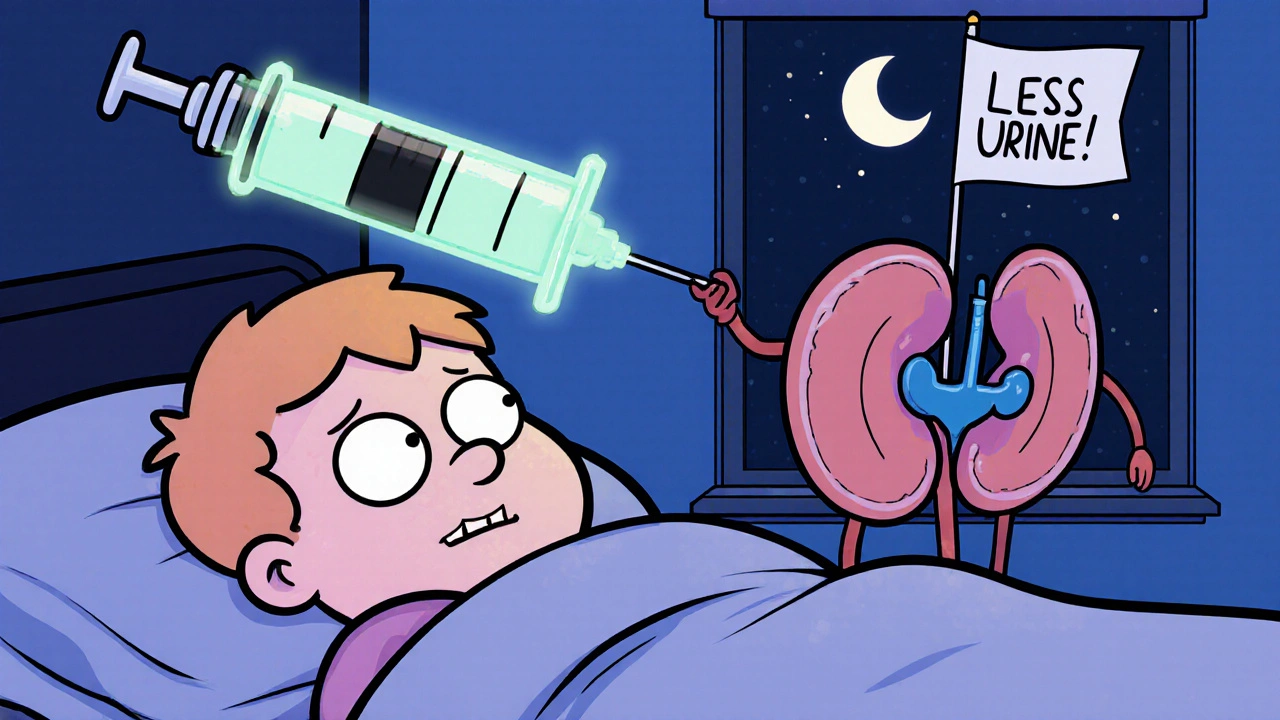Desmopressin injection helps control excessive urination and bleeding by mimicking a natural hormone. Used for diabetes insipidus, bedwetting, and bleeding disorders, it requires careful dosing and fluid restriction to avoid dangerous side effects like low sodium.
Antidiuretic Hormone: What It Does, Why It Matters, and How It Affects Your Health
When your body needs to hold onto water, it turns to antidiuretic hormone, a chemical produced by the hypothalamus that tells your kidneys to reabsorb water instead of flushing it out. Also known as vasopressin, this hormone is your body’s natural way of preventing dehydration and keeping blood pressure stable. Without it, you’d lose too much fluid through urine—even when you’re not drinking enough.
ADH doesn’t work alone. It’s tightly linked to kidney function, how your kidneys filter blood and decide what to keep or remove. When ADH levels rise, your kidneys tighten their grip on water, making urine more concentrated. When levels drop, you pee more and faster. This system also connects to water balance, the delicate equilibrium between fluid intake, output, and body needs. Too little ADH? You might develop diabetes insipidus—excessive urination and thirst. Too much? Your blood gets diluted, sodium drops, and you could feel dizzy, nauseous, or even have seizures.
Many of the medications and health conditions covered in the posts below relate directly to how your body handles fluids, electrolytes, and hormones. For example, drugs like desmopressin (a synthetic form of ADH) are used to treat bedwetting or certain types of diabetes insipidus. Other treatments, like those for heart failure or liver disease, aim to fix fluid overload by adjusting how ADH behaves. Even something as simple as drinking too much water can throw off this system, leading to hyponatremia—a condition doctors see more often than you’d think.
What you’ll find here isn’t just theory. These posts dig into real-world cases: how certain drugs affect hormone levels, why some people develop water retention, how kidney issues tie into hormone imbalances, and what steps you can take if your body isn’t regulating fluids right. Whether you’re managing a chronic condition, dealing with unexplained thirst or swelling, or just trying to understand why your doctor ordered a blood sodium test, this collection gives you the facts without the fluff.

